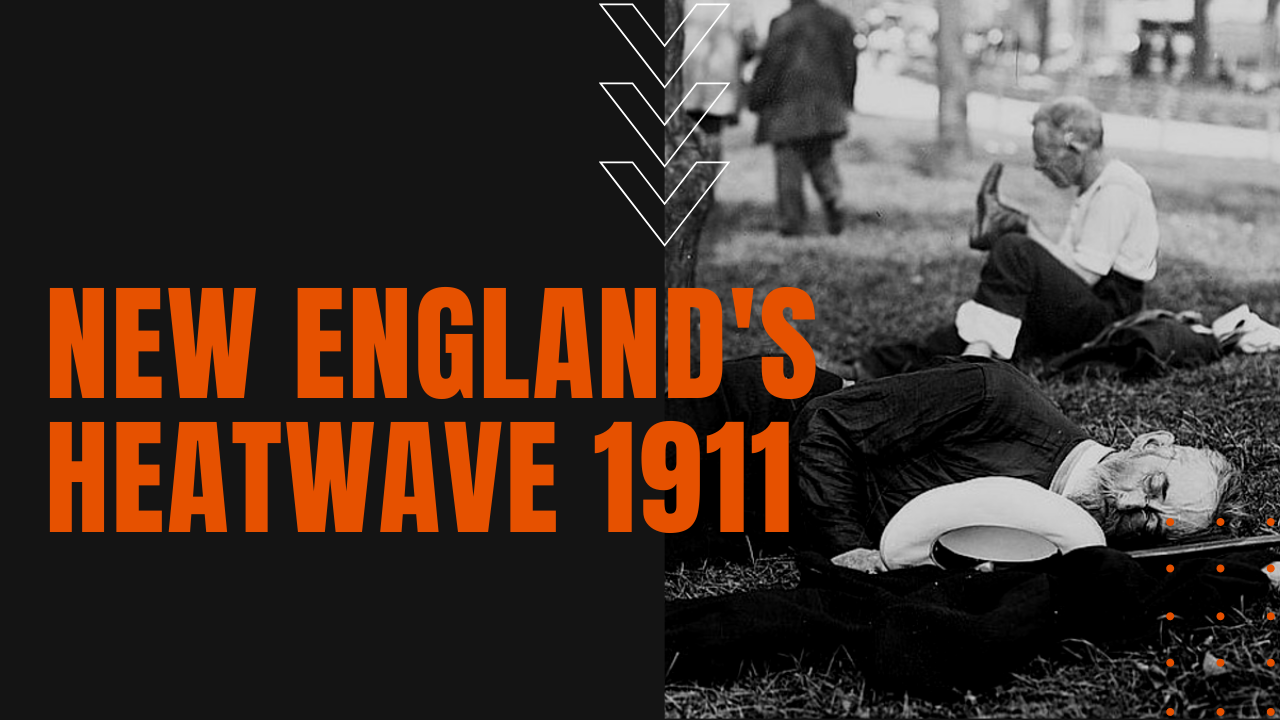New England’s Heatwave of 1911

Throughout June of 1911, temperatures had been consistent with previous New England summers, but starting in July, dry air which originated from the southern great plains began to flow into Canada before sweeping south across the east coast of America.
The hot wind extinguished cooler ocean breezes, causing temperatures to rise so abruptly and dramatically that in Providence, Rhode Island, there was an 11-degree rise in temperature in less than a half hour’s time.
Beginning on the Fourth of July and lasting for the next eleven days, a punishing heatwave blanketed the east coast from Pennsylvania to Maine. In Boston on the Fourth, temperatures clocked in at 104 degrees, which stands as an all-time record high still to this day.
The first day of the heatwave saw crowds in major cities form around thermometers so they could watch the rise in temperature. Pedestrians began to collapse from heatstroke as conditions worsened, and by nightfall, mothers walked the streets with crying infants, fearing they would die in their cribs if not kept awake.
Heatwave Deaths
The following day, 17 people died from drowning alone after trying to escape the heat in ponds and beaches—a total that would rise to over 200 lives before the heatwave was finally broken. By the time the sun had risen on July the 5th, industry had ground to a halt, closing factories for the safety of workers, while suspending mail service throughout the region.
Due to the sweltering temperatures inside homes, many began sleeping outside, either on apartment rooftops or sidewalks, while Boston Commons saw no less than 5,000 people sleeping on her grassy lawns each and every night. Besides more than 380 human deaths and over 600 equine fatalities, every major city in the affected heatwave reported that rising temperatures were driving many insane, while still others succumbed to suicidal urges in an effort to escape the heat.
One such example reported by the New London Day, was an elderly Bostonian named Jacob Seegar, who reportedly was driven so mad by the heat that he killed himself with a revolver in order to escape his temporary misery.
The death toll and suffering continued to rise in an age before air conditioning, until a sudden thunderstorm brought a wave of welcome relief, ending a period of communal misery that people would remember for the rest of their lives.
